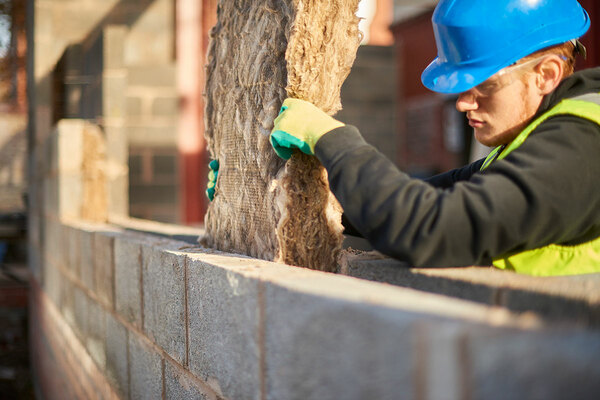You are viewing 1 of your 1 free articles

Tom Jarman is the Network Development Lead for Social Housing and Local Government for The Retrofit Academy. He has over 15 years ...more
We are not going to be regulated or subsidised back into our comfort zone
Tom Jarman argues that a complete change in social housing’s “clienting culture” is needed to deliver the decarbonisation of the sector’s homes, and it can reframe the sector’s relationship with government
Last October, my comment piece in Inside Housing issued a challenge to the sector on zero carbon. It asked the sector to move away from its comfort zone, and take a very real look at its role in decarbonisation in the circumstances in which we find ourselves.
Its fundamental point was that a narrative focused on subsidy and regulation will fail to win friends and influence people at a time when national debt has topped 100% of GDP, and inequality, mental health and economic recovery and resilience are of the greatest concern in a generation.
Within this big picture, there is something else happening that is of great significance, and that by and large we have completely missed – and that’s the changing culture within government in its role as a construction client.
This is moving from a transactional culture based on lowest capital cost, towards one based on value over the long term. Not everywhere, all the time – and sometimes clumsily – but steadily, consistently and effectively.
So why did we miss this in housing?
One of the earliest indicators of this change was the presumption in favour of offsite manufacturing, announced in the Spring Statement 2017 and live in April 2019. This sparked internal activity – communication, joint working, capability building, industry engagement – within the five presumption in favour departments.
But housing wasn’t one of the five. I can speculate why, but to quote Mitchell and Webb, “that was a big miss”. And up until now, we’ve swam outside this crucial development within government. Our narrative has become increasingly irrelevant to a government estate that has developed a sophisticated view on outcome and value.
“We have already missed a major opportunity to gear up for what we know we need to do: decarbonise new and existing stock”
And I say ‘estate’ deliberately. This direction of travel is embedded within the departments and permanent structures, within Treasury, the Infrastructure and Projects Authority and Innovate UK, whose purview transcends more than one electoral cycle.
The most significant recent development was the publication of The Construction Playbook in December 2020, and its remit includes Homes England.
During the course of the implementation period, Homes England will be expected to build the capabilities to deliver outcome and value, and play its part in the transformation of the construction sector such that it is fighting fit to meet 21st century challenges: productivity; skilled, well-paid jobs; housing quality and performance; community and economic resilience; and decarbonisation.
The reality is that most of Homes England’s delivery will come via its own client and partner network. And that’s you.
Social housing is a significant construction client, spending some £15bn a year on repairs and maintenance and new build, and commissioning some 20% of all new build housing every year. But we have already missed a major opportunity to gear up for what we know we need to do: decarbonise new and existing stock.
Despite individual, commendable efforts, as a sector we have not used the past decade to develop a more sophisticated understanding of how we decarbonise, with our focus remaining almost exclusively on cost. And for a potentially transformational partner in the decarbonisation space, this is a tragedy, not least because so many of the outcomes from decarbonisation align with our own stated values.
“Despite individual, commendable efforts, as a sector we have not used the past decade to develop a more sophisticated understanding of how we decarbonise, with our focus remaining almost exclusively on cost”
Decarbonisation is the place where our transformational potential and opportunity to reinvent come together. They have to, because this government, any government, does not have £100bn to give us.
At an operational level, decarbonisation is very risky, and a focus on value and outcome, and the conscious creation of the structures to enable this and maintain intent, are the only way to deliver decarbonisation in a way that means it operates safely and effectively over the long term. Transactional, cost-based practice is simply not up to the challenge.
I know we have to triangulate building safety regulation, delivery of new homes and decarbonisation of existing stock, and that this keeps people up at night for good reason. But we are not going to be regulated or subsidised back into our comfort zone.
“We are already far more removed from the mainstream than we want to acknowledge”
The only way forward is to show client leadership around our priorities as construction clients, be clear about what this will transform, and drive forward the structures and relationships to deliver this. This entails much more challenging clienting from individual organisations, and much more leadership and ambition from the sector as a whole.
We probably need some time in the wilderness to find ourselves again – but we are already far more removed from the mainstream than we want to acknowledge.
We need to emerge at the point when we have a reason for government to pay us attention again. And that’s not cost, or subsidy, or grant. It’s outcome and value, ambition and impatience, transformation.
Read the Construction Playbook, and gear up. This is a significant and systemic step towards outcome and value, representing real traction and momentum. And it can absolutely play to our strengths – if we’re willing to take on the challenge.
Tom Jarman, director, Low Carbon Journey
Sign up for our development and finance newsletter
Already have an account? Click here to manage your newsletters












